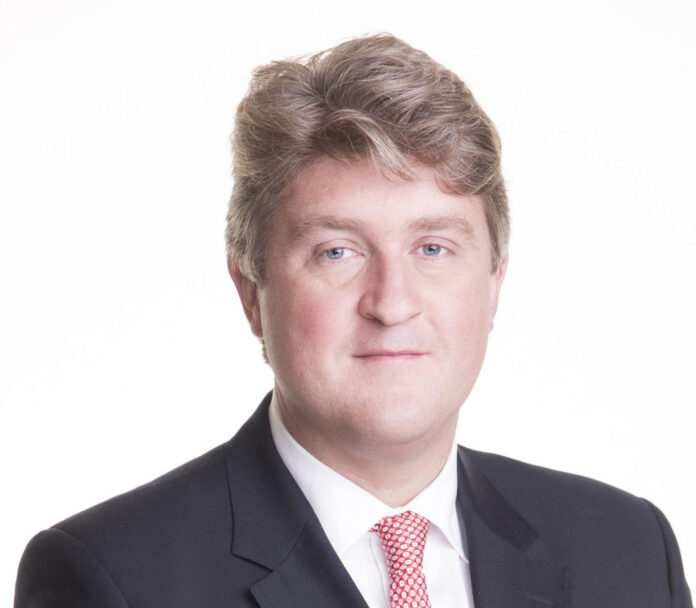HEALTH Minister Simon Harris is coming under pressure to ease some of the Covid-19 restrictions in Clare following official confirmation the incidence of the virus is the second lowest in Munster.
According to official figures, Waterford has the lowest number of confirmed cases in Munster on Wednesday with 138 compared to 229 in Clare, 288 in Kerry, 370 in Tipperary, 518 in Limerick and 1,126 in Cork.
Even when population is taken into account, Clare has the second lowest incidence of Covid-19 per head in the province.
As frustration grows over how many weeks Clare people will be forced to remain in a restrictive national lockdown, Deputy Michael McNamara has presented a strong case for the need to apply a different level of restrictions in different regions subject to public health guidance.
New EU guidelines for the control of Covid-19 have proposed that national lockdowns could be replaced by targeted regional measures.
However, the new EU guidelines also recommend that any decision to ease restrictions should be based on evidence that there has been a sustained drop in cases, and should only be done if countries have the capacity to monitor whether infections increase and if their healthcare systems have the ability to cope if the disease bounces back.
Speaking in the Dáil, Deputy McNamara stated EU Commission president Ursula von de Leven has spoken about proposals to move away from blanket national to more regional measures.
“The transmission rates are different across the country and there are particular pockets of infection. Has the Minister (Harris) given consideration to having different regimes in place for different areas?
“What is required for Dublin City is different to what is required for rural Clare. However, there is the same infringement on liberty, on people going about their lives, on people seeing their family members and on people earning some money – because ultimately the health service has to be paid for,” he stated.
Health Minister Simon Harris acknowledged Deputy McNamara had good points on infringement on life but pointed out the biggest infringement on life is death.
Minister Harris said the main emphasis of the government was to save lives.
“Deputy McNamara is correct. the Oireachtas has given me the power to look at regional areas. It is something we keep under consideration. The current view is that the size of the country means that would not be practical in terms of the transmission of the virus but it is always kept under review,” he stated.
The former Labour Deputy told the Clare Champion the government must examine look at whether the restrictions are proportionate in any county.
He said different measures were needed for a crowded nightclub in Dublin compared to a rural pub in Feakle where you might have three or four people having a quiet drink.
“There comes a time when you have to open up the economy and I think it is very soon in Clare. There is a case for different restrictions in different parts of the country.
“I accept the gardaí need to police Lough Derg but are we seriously going to see the spectacle of people being stopped in boats fishing for May fly as they have done for decades like their fathers and grandfathers before them on the lake.
“People are very well spaced out. It is a very solitary activity and it doesn’t involve group hugs or anything like a rugby scrum. It is an activity that lends itself to people being apart on the biggest lake in the Republic.
“If this happens, it would be farcical,” he said.
Deputy Joe Carey said he was confident that the National Public Health Emergency Team (NPHET) would consider whether easing restrictions on a county basis is appropriate and would advise the government on the best course of action.
Acknowledging the number of Covid-19 cases in Clare were low in comparison to other counties, he urged people not be be complacent.
The Fine Gael Deputy said easing some restrictions on a county basis is a possibility that could be considered.
“A step by step plan is being put in place, which will be unveiled to the public ahead of May 5. I don’t want to add to any speculation because I don’t think it serves any purpose. I don’t want to raise expectations only for them to be dashed.
“The last week of the current restrictions have been challenging for businesses and people in general because their lives have been put on hold. There are quiet a number of questions in terms of easing of restrictions. We have to be guided by medical experts, “ he said.
Deputy Cathal Crowe believes the low incidence of the virus in Clare is due to the fact that most people have embraced measures such as social distancing while Clare County Council put in place measures to limit the number of day trippers visiting tourist hot spots such as Lahinch and Kilkee.
However, he expressed concern about delays in testing as one woman in North Clare, who was tested four weeks ago still hasn’t received a result. While this woman doesn’t have any symptoms now, he said she isn’t sure if she had the virus.
While the Fianna Fáil Deputy said it is clear the virus spreads quicker in urbanised areas, he is not in favour of easing restrictions on a county basis.
“If one county is opened up ahead of others, you will see an influx of people congregating in that county. The best way of doing it is sector by sector,” he said.
Deputy Violet-Anne Wynne said it is not safe to unwind public restrictions until there is a wide and efficient testing system and indeed contact tracing in place.
“The mantra must be test, isolate, trace. Easing of restrictions must be done in a clear manner to avoid any confusions, especially in light of the possibility of a second wave. We need to undertake modelling and plan to lift restrictions on an all-island basis. Re- starting of the economic activity should be phased in and only when it can be done in a safe way,” she stressed.
She confirmed that she is seeking a meeting with the CEO of Shannon Airport with Senator Paul Gavan, Deputy Maurice Quinlivan and Deputy Martin Browne to establish what supports need to be put in place to support the airport and staff.
She believes Shannon Airport needs to be central in any discussion to revitalise the Clare economy.
While Senator Martin Conway hopes that the National Public Health Emergency Team (NPHET) will able to recommend the easing of some restrictions, he believes this should only be done on a national and not a county basis, which isn’t workable.
Senator Conway said any change in restrictions has to be recommended by NPHET and medical experts and stressed applying different restrictions in different counties would be difficult to police unless this is recommended by medical experts.
“We have to take short-term pain for long term gain. There has been a significant number of Covid-19 patients in University Hospital Limerick, which is only over the border in Clare and is another reason for not having regional restrictions. Covid-19 doesn’t respect county boundaries so we can’t take that risk,” he said.
Dan Danaher
East Clare correspondent, Dan Danaher is a journalism graduate of Rathmines and UL. He has won numerous awards for special investigations on health, justice, environment, and reports on news, agriculture, disability, mental health and community.




